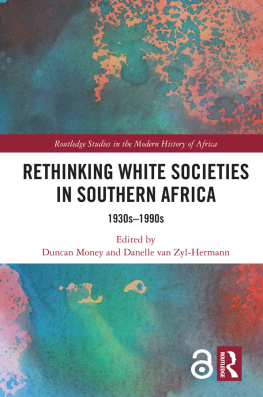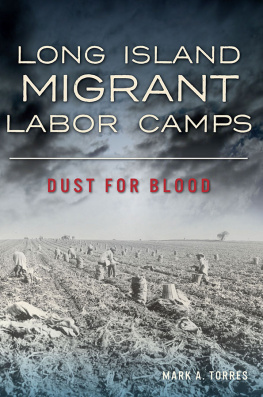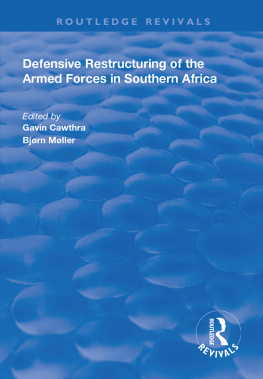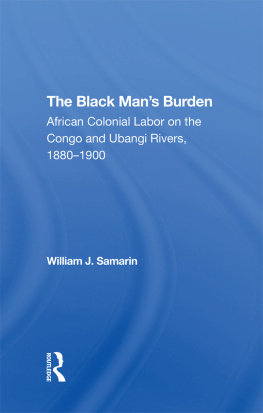I love writing acknowledgments. They are such a wonderful opportunity to thank so many people for their contributions to what is misleadingly presented to the world as an individual achievement. This is why the acknowledgments to my dissertation ran to twelve pages. I dont think I can do that again, but I do want to try to thank the many people who have had a role in producing this book.
First and foremost, I offer my profound thanks to the many people in Mozambique and Portugal who graciously assisted me in conducting my research. In Lisbon, Paulo Tremoceiro, Gerhard Seibert, Alexander Keese, Miguel Bandeira Jernimo, and Brbara Direito were helpful and friendly guides to the archives. In Mozambique, I am deeply indebted to the staff of the Arquivo Histrico de Moambique, particularly the director, Joel das Neves Tembe, and the dedicated archivists who cheerfully tolerated my constant requests to dredge up hundreds of boxes, including Alberto Calbe Jaime, Abel Pelembe, Jorg Titos Langa, Jaime Mondlane, Zeca Ponde, Maria da Conceio Joo, Jorg Mahamane, and Arquimedes Gabriel Cuinhane. Arlindo Chilundo, Antnio Sopa, and Gerhard Liesegang were helpful in pointing me in the right direction. In Manica and Sofala, I received vital assistance from Elias Malengua Dzivane, Chica Covele, Joo Diamantino Joaquim, Jacob Samuel Jos Sendela, and Danilo de Jesus Picardo. I would also like to thank Agnecia Raquel Samuel Guirruta, Hlio Bento Mangue, Zacarias Domingos Muconhola, and Antnio Lus Chipanembe for helping to transcribe the interviews. In addition to his work as a research assistant, Narciso Manecas Gastene has been a teacher, a guide, a partner, and a friend, and his importance to this project is difficult to overstate.
I am also grateful for the numerous institutions that generously financed my research. My initial research in Mozambique was funded by the Princeton University Department of History and the Princeton Institute for International and Regional Studies. Subsequent research in Lisbon was made possible thanks to a grant from the Fundao Luso-Americana. Finally, the College of Liberal Arts of the University of Mississippi and the Arch Dalrymple III Fund supported further research trips to Mozambique, and the Dalrymple Fund helped defray some of the production costs.
I am indebted to many, many scholars and friends whose intellectual labors have consistently helped sharpen and strengthen my ideas. The list of people whose questions and comments have driven my writing is far too long to put into an acknowledgments section, so I will shorten it by thanking colleagues for the feedback I have received on this project through various conferences and workshops at the Princeton University African History Seminar, the Princeton University Colonialism and Imperialism Workshop, the New England Workshop on Southern Africa, the New York Area African Studies workshop, the African Studies Association conference, Humboldt University Berlin Re:Work conferences on work and lifecycle and forced labor, and the University of Mississippi History Department colloquium. I am especially thankful for the mentors and friends who helped guide this project in its earlier stages as a doctoral dissertation and its later stages as a book. Bhavani Raman and Gyan Prakash helped break open my intellectual horizons. Michelle Bourbonniere, Nathan Fonder, and Alden Young were part of a highly productive writing group. Paul Ocobock, Marcia Schenck, Morgan Robinson, Kimberly Worthington, Elisa Prosperetti, Alden Young, Robert Tignor, Nathan Fonder, Rachel Kantrowitz, Charlotte Walker-Said, and Michelle Bourbonniere all helped nurture a vibrant intellectual community of scholars at Princeton studying the history of Africa. Mariana Candido has always provided amazingly trenchant advice on matters both personal and professional. Emmanuel Kreike has always been exceedingly generous with his time and his support, and his warmth as a scholar and an advisor has given me a model that I hope someday to emulate. At the University of Virginia Press, Dick Holway, Ellen Satrom, Nicholas Rich, and Mark Mones have patiently helped guide this book toward production, while Nat Case made some great maps, Eric Newman and Whit Barringer provided expert copyediting, and Ina Gravitz produced the index. Rick Elphicks advice on my undergraduate thesis had a profound influence on my early development as a scholar; it is tremendously gratifying to have the opportunity to bring full circle the first phase of my academic life by working with him on this book. I am deeply grateful for his encouragement and support as a teacher and editor over the past fourteen (!) years.
I have been fortunate to become part of a supportive group of historians studying Mozambique; their social and professional assistance has helped shape my research and refine my arguments. Its been great to work alongside Heidi Gengenbach, Todd Cleveland, Eric Morier-Genoud, Michael Panzer, Betty Banks, Justin Pearce, Denise Malauene, Benedito Machava, Lilly Havstad, Drew Thompson, Allen Isaacman, Kathleen Sheldon, Jeanne Penvenne, Ruth Castel-Branco, Alicia Lazzarini, and Marcia Schenck. I am particularly indebted to David Morton and Eric Allina. Daves advice, reassurance, and friendship were particularly important when I was in Maputo. Theyve continued to be important since then, as has his expert ability to edit my hazy and unfocused prose. Erics generosity as both a mentor and a friend has been limitless. Having spent dozens of hours together on three continents and traded thousands of e-mails over the past decade, I cant say enough about the ways he has helped me to navigate work, life, and everything in between.
Thanking nonacademic friends in the acknowledgments section of a specialized historical monograph is perhaps uncommon (maybe? Im not sure) given that its not really their scene. But I dont care, because I consider myself very fortunate to have maintained friendships with people who dont know or care that much about what I do for a living. Ive shared lots of lovely moments with Senadhi Parakrama, Flora Chan, Ian Hebert, Krista Vogt, Sam Cohen, Annie Dow, Jonathan Parnes, Ali Chrisler, Ben Wiseman, Kate Dumouchel, Ethan Schiffres, Allie Ganz, Jonathan Cohen, Stephanie Roos, Aaron Pearl, Craig Wasserstrom, Nick Velez, Mncedisi (Junior) Jekwa, Dilshad Tung, Juliana Soares Linn, Stacey Litner, Elizabeth Chuck, Scott Clarkson, Kevin Egolf, Megan Ridley-Kaye, and Lauren Hoshibata. Whether its discussions about politics, food, sports, travel, life, or anything else that isnt history, their friendship has helped me remember that theres more to life than the nerdy things I do for my job, and Im thankful for that.
Of course, Im also thankful for friends who are part of the history-nerd community. I was fortunate to spend time in Princeton with Valeria Lopez Fadul, Seiji Shirane, Jenna Phillips, James and Jessica Pickett, Evan Hepler-Smith, Molly Lester, Chris Florio, Ben Gross, Annie Twitty, Jamie Kreiner, Chris Shannon, Willy Deringer, Paul Davis, Saarah Jappie, Joel Suarez, Elisa Flores, Henry Cowles, Anna Bonnell-Friedin, Padraic Scanlan, Catherine Evans, Hannah-Louise Clark, Nathan Fonder, Radha Kumar, Sarah Milov, and Kyrill Kunakovich. I was doubly fortunate to have a community of Princeton friends who study African historyPaul Ocobock, Alden Young, Marcia Schenck, Morgan Robinson, Kimberly Worthington, and Elisa Prosperettiand who created a super-fun yet intellectually nourishing community. I am grateful to all of them for doing so much to enliven my time in that excessively posh and weirdly sterile Gothic wonderland.







